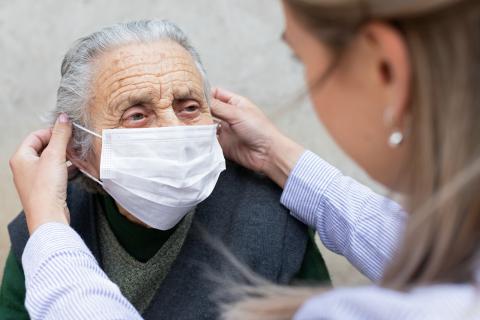
Nearly every charity in the country has been affected by the pandemic, even if they’re not directly responding to it. Just in the past six months, nearly a million nonprofit jobs were lost, according to a recent report.
One reason for this is that charities run like businesses in some ways, receiving revenue from their activities (such as ticket sales) as well as contracts to run programs (such as a drug rehab program supported by a city government). Like businesses, many charities have lost revenue during the pandemic, leading to program cuts and job losses.
At the same time, many charities are facing an unprecedented need for their services. This need has gotten a lot of attention in relation to food banks, most of which are serving far more people than in the past. But many other types of charities are also having to find ways to respond to the pandemic’s impact on the people they help.
One example is charities helping people with diabetes and other kidney problems – more than 37 million Americans. These people “are facing enormous risks and challenges,” said the president of the American Kidney Fund. “They are losing their jobs. They have had to stop using public transit to get to their treatments…. Patients with compromised immune systems need help obtaining groceries and other essential safely.”
Similarly, charities helping people with autism are responding to “widespread disruptions to the daily lives of autistic children, teens and adults,” according to Autism Speaks.
In the DC area, the Arlington Free Clinic (CFC #86926) says that many of the patients it serves “have already lost their jobs in construction, restaurants, cleaning and childcare and are struggling with access to food, transportation and other emergency needs. Very few will benefit from federal government support.”
“Like the rest of the country, COVID-19 turned AFC’s world upside down, but unlike most places, we can’t shut down.”
Here are how a few Combined Federal Campaign charities are responding to the pandemic.
American Kidney Fund (CFC #11404)
The AKF Coronavirus Emergency Fund is providing $250 grants to any U.S. dialysis or recent kidney transplant patient in financial need to help them cope with the pandemic. AKF provided financial assistance to 84,000 people living with kidney failure last year.
Autism Speaks (CFC #12413)
Autism Speaks has been working with other autism organizations and researchers to develop tools that can help people with autism through this crisis.
Food for the Hungry (CFC #11732)
This charity is using its 50-year history of focusing on health and hygiene to help the communities in which it works protect themselves from COVID-19. This has involved both providing things like clean water and soap as well as finding innovative ways to teach prevention strategies in these communities, which are in Africa, Asia and Latin America.
Food For The Poor (CFC #10328)
Since mid-March, Food For The Poor has shipped 709 tractor-trailer loads of aid to the countries it serves, including 200 containers specifically for COVID-19 relief. FFTP focuses on Caribbean and Latin American countries.
Humane Society of the U.S. (CFC #11894)
The Humane Society launched the COVID-19 Relief Fund to support animal shelters, rescue groups and other organizations that are responding to the economic impacts of the COVID-19 outbreak. Its goal is to keep people and their pets together during this crisis. Contributions provide veterinary care, pet food, horse feed and animal care supplies, as well as other costs related to caring for animals during the outbreak.
Unitarian Universalist Service Committee (CFC #11685)
UUSC’s focus has always been on social justice and human rights, principles that also define its response to COVID. It’s providing as much support as it can to its partners working in places like Bangladesh, Guatemala and Honduras, all of which face greater needs. It helps its partners take collective action and monitor human rights abuses stemming from the pandemic and accompanying economic instability.
Local funds set up to help communities
You can find information about more than 900 local and statewide funds set up to help local people and organizations across the country. This resource was created by Candid, a new nonprofit created through the merger of the Foundation Center and Guidestar.
International charities response to the pandemic
Interaction, an alliance of international NGOs (non-governmental organizations), has a summary of what its members are doing in response to the pandemic.
Here is a list of mostly national charities that are responding to the pandemic from The Washington Post.
Here is a list of DC-area charities responding to the pandemic, again from the Post.
